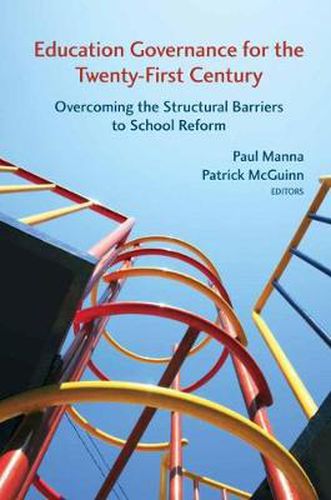Readings Newsletter
Become a Readings Member to make your shopping experience even easier.
Sign in or sign up for free!
You’re not far away from qualifying for FREE standard shipping within Australia
You’ve qualified for FREE standard shipping within Australia
The cart is loading…






America’s fragmented, decentralized, politicized, and bureaucratic system of education governance is a major impediment to school reform. In this important new book, a number of leading education scholars, analysts, and practitioners show that understanding the impact of specific policy changes in areas such as standards, testing, teachers, or school choice requires careful analysis of the broader governing arrangements that influence their content, implementation, and impact. Education Governance for the Twenty-First Century comprehensively assesses the strengths and weaknesses of what remains of the old in education governance, scrutinizes how traditional governance forms are changing, and suggests how governing arrangements might be further altered to produce better educational outcomes for children. Paul Manna, Patrick McGuinn, and their colleagues provide the analysis and alternatives that will inform attempts to adapt nineteenth and twentieth century governance structures to the new demands and opportunities of today.
$9.00 standard shipping within Australia
FREE standard shipping within Australia for orders over $100.00
Express & International shipping calculated at checkout
America’s fragmented, decentralized, politicized, and bureaucratic system of education governance is a major impediment to school reform. In this important new book, a number of leading education scholars, analysts, and practitioners show that understanding the impact of specific policy changes in areas such as standards, testing, teachers, or school choice requires careful analysis of the broader governing arrangements that influence their content, implementation, and impact. Education Governance for the Twenty-First Century comprehensively assesses the strengths and weaknesses of what remains of the old in education governance, scrutinizes how traditional governance forms are changing, and suggests how governing arrangements might be further altered to produce better educational outcomes for children. Paul Manna, Patrick McGuinn, and their colleagues provide the analysis and alternatives that will inform attempts to adapt nineteenth and twentieth century governance structures to the new demands and opportunities of today.